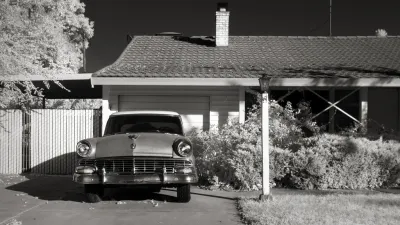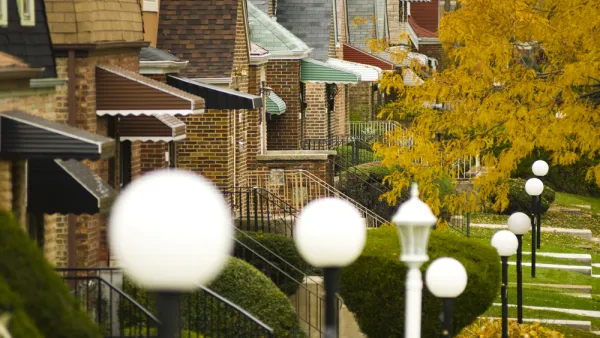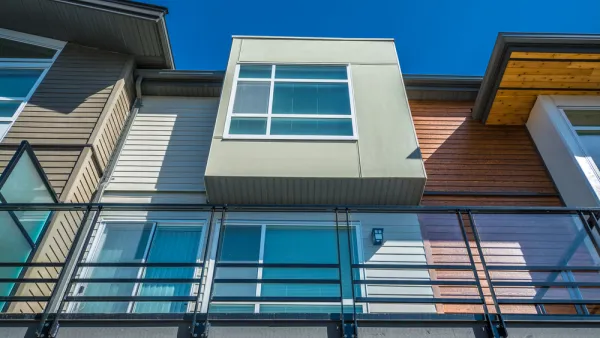While suburbs are changing, that doesn't mean they are declining, according to recently published research.

Whitney Airgood-Obrycki writes that "recent patterns of increasing poverty, greater racial diversity, widespread foreclosures, and fiscal distress" is changing the 20th century narrative about U.S. suburbs. Gone are the days of idyllic WASP homes.
But does that mean that suburbs are in decline? Airgood-Obrycki thinks narratives of decline are overstated—laying out that case in a new paper, "Suburban Status and Neighborhood Change," published online by the Urban Studies journal.
Airgood-Obrycki "examined status changes from 1970 to 2010 for city and suburban neighborhoods in the nation’s 100 most populous metros," using Census tracts as the unit of measure as a proxy for neighborhoods.
As for findings, Airgood-Obrycki explains: "While there was some evidence of suburban status decline over the study period, I found that high-status neighborhoods were and continue to be disproportionately located in suburban communities. The share of top quartile neighborhoods located in the suburbs rose from 68 percent in 1970 to 75 percent in 2000 before falling slightly to 74 percent in 2010."
FULL STORY: Are the Suburbs Losing Status?

Analysis: Cybertruck Fatality Rate Far Exceeds That of Ford Pinto
The Tesla Cybertruck was recalled seven times last year.

National Parks Layoffs Will Cause Communities to Lose Billions
Thousands of essential park workers were laid off this week, just before the busy spring break season.

Retro-silient?: America’s First “Eco-burb,” The Woodlands Turns 50
A master-planned community north of Houston offers lessons on green infrastructure and resilient design, but falls short of its founder’s lofty affordability and walkability goals.

Test News Post 1
This is a summary

Analysis: Cybertruck Fatality Rate Far Exceeds That of Ford Pinto
The Tesla Cybertruck was recalled seven times last year.

Test News Headline 46
Test for the image on the front page.
Urban Design for Planners 1: Software Tools
This six-course series explores essential urban design concepts using open source software and equips planners with the tools they need to participate fully in the urban design process.
Planning for Universal Design
Learn the tools for implementing Universal Design in planning regulations.
EMC Planning Group, Inc.
Planetizen
Planetizen
Mpact (formerly Rail~Volution)
Great Falls Development Authority, Inc.
HUDs Office of Policy Development and Research
NYU Wagner Graduate School of Public Service




























